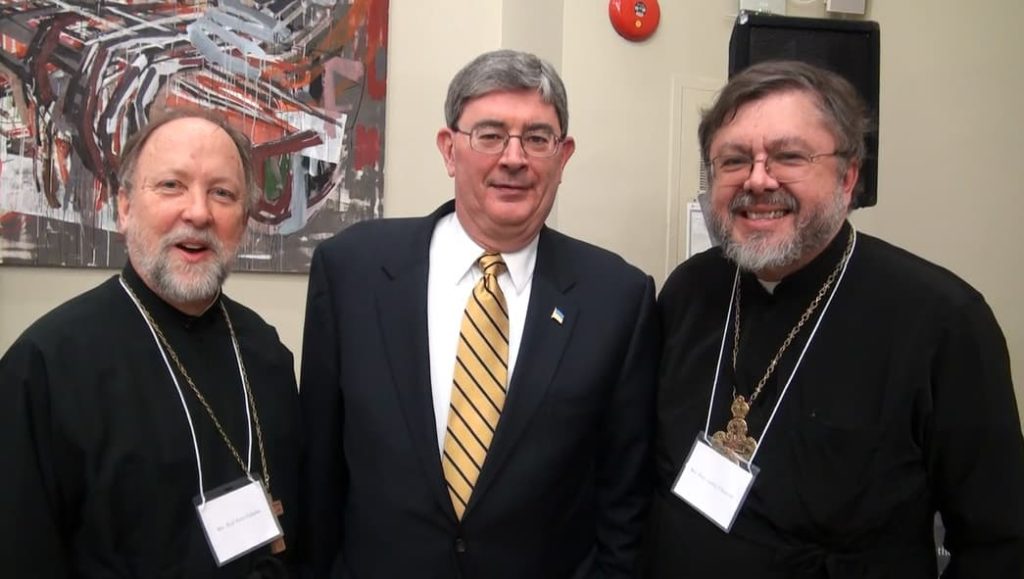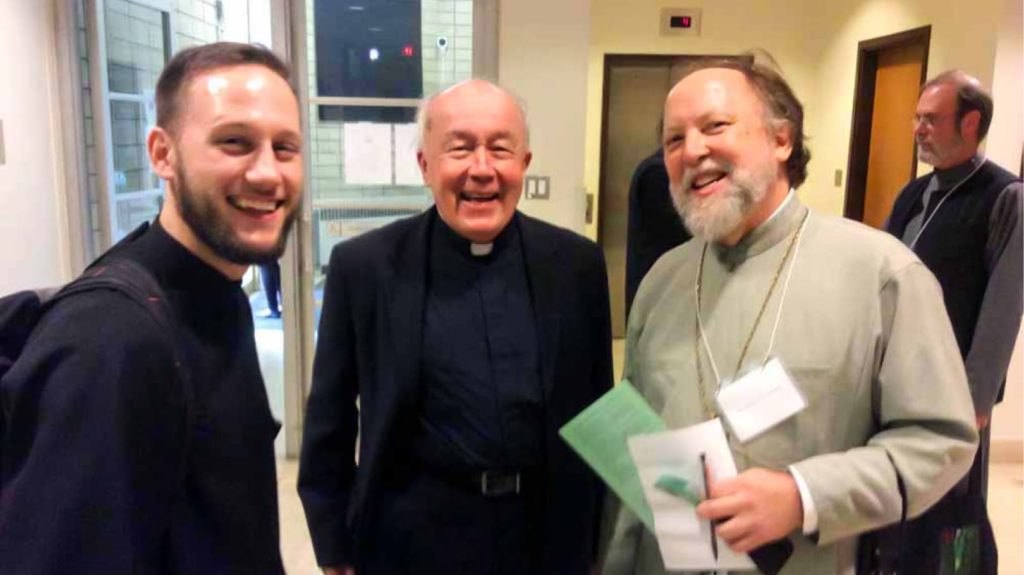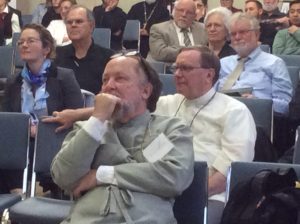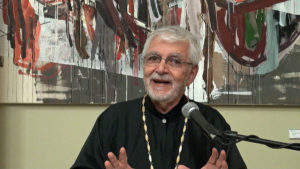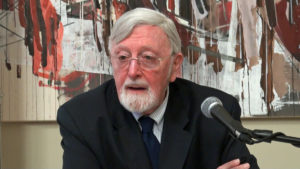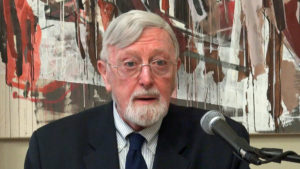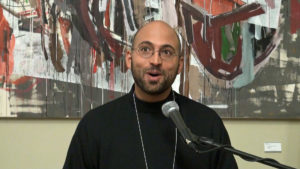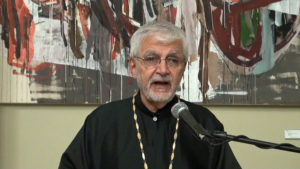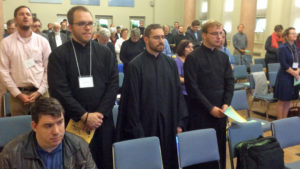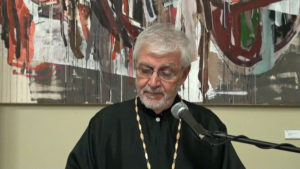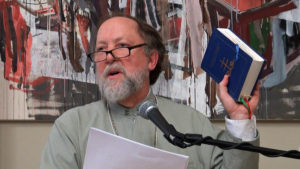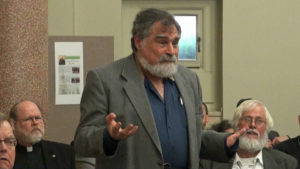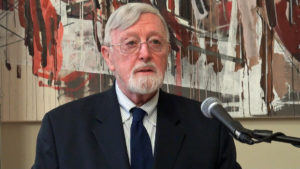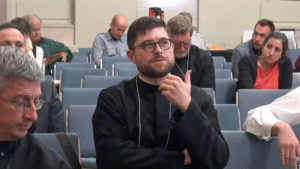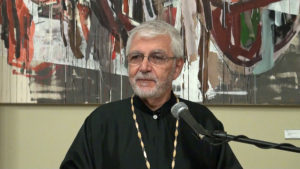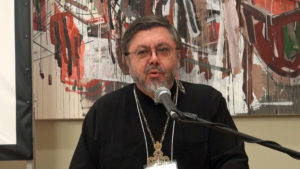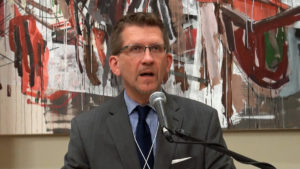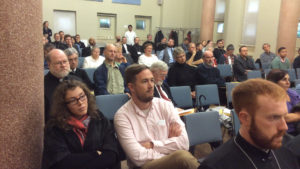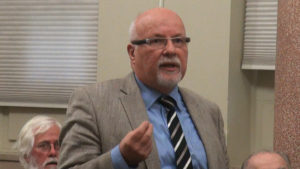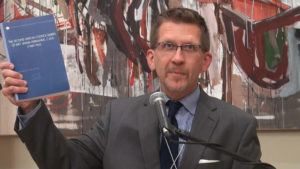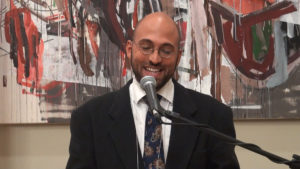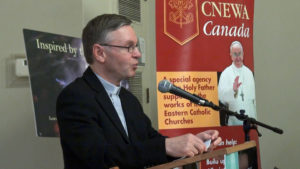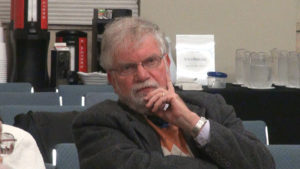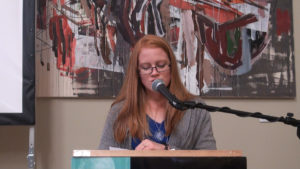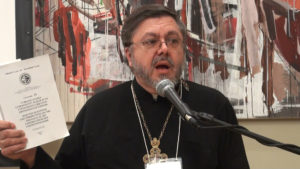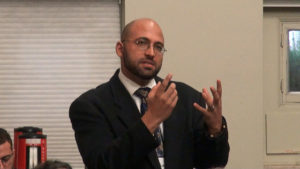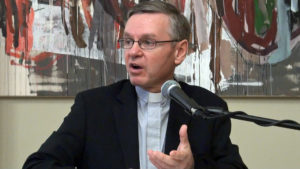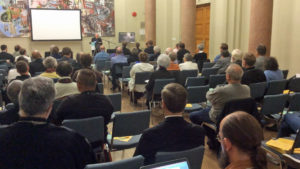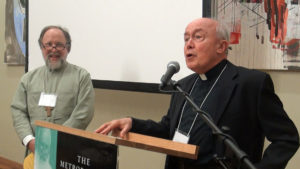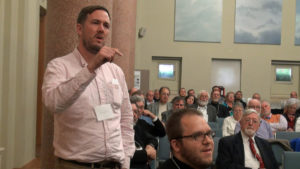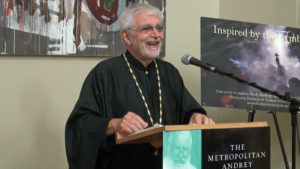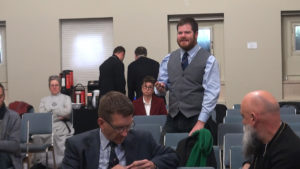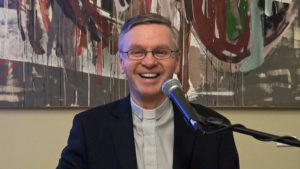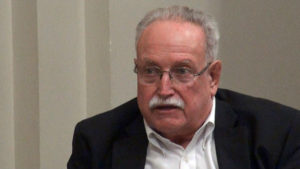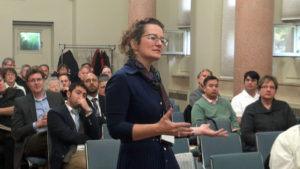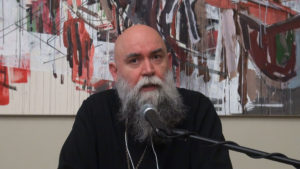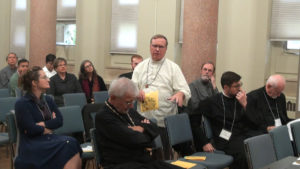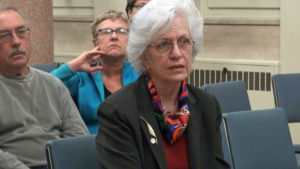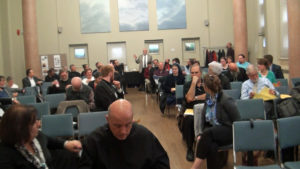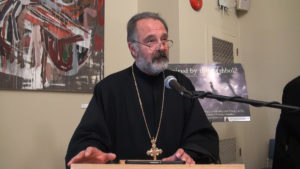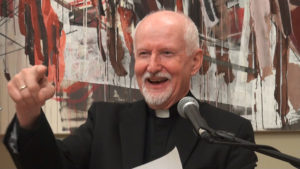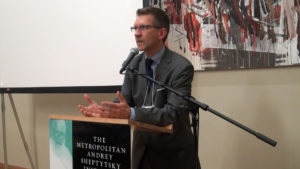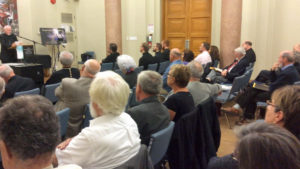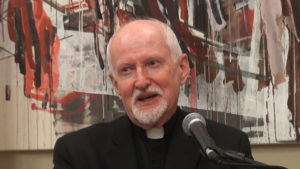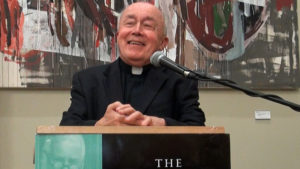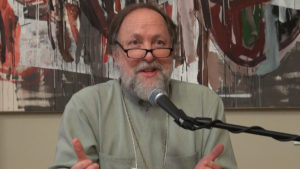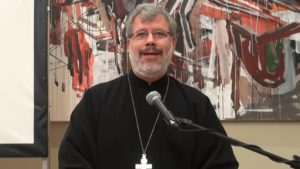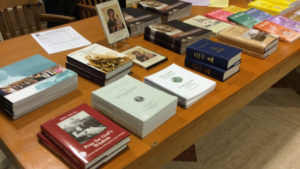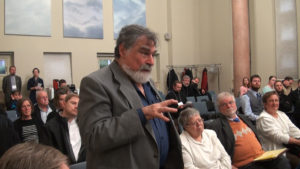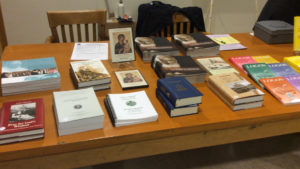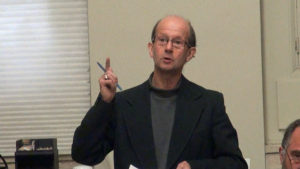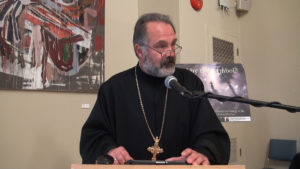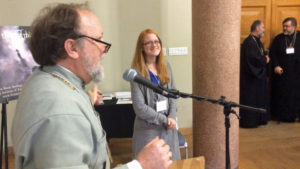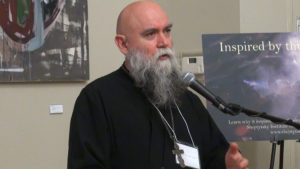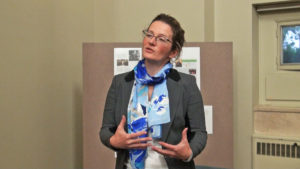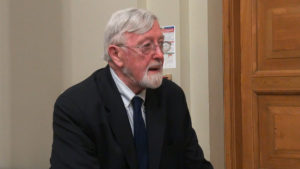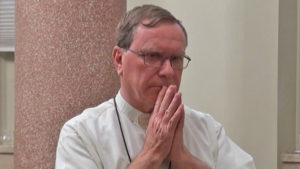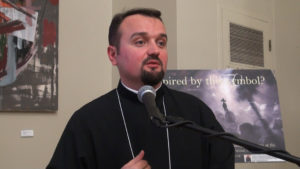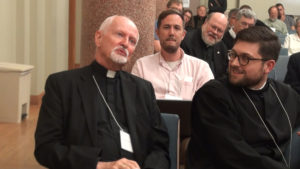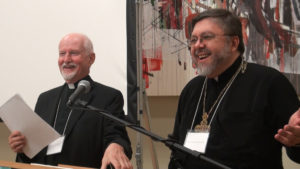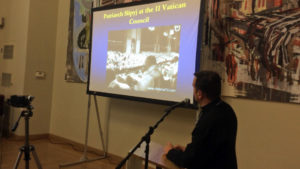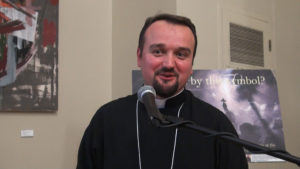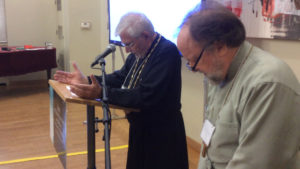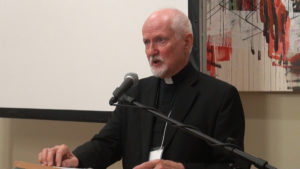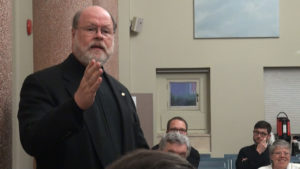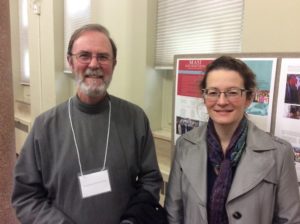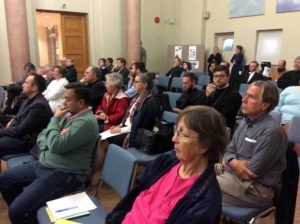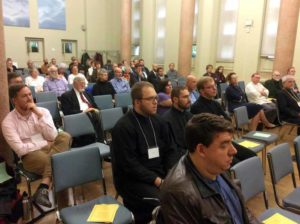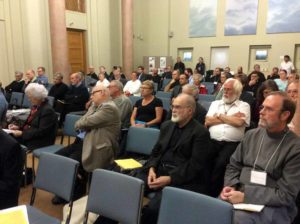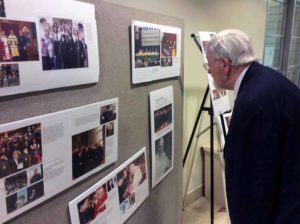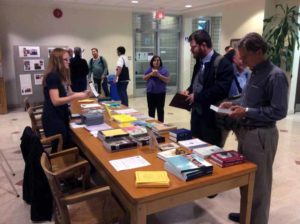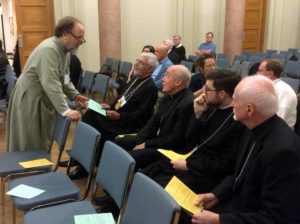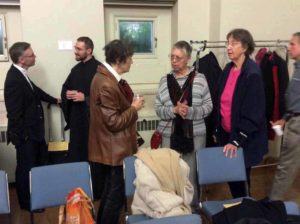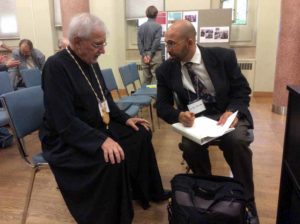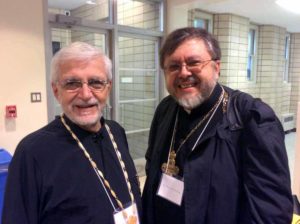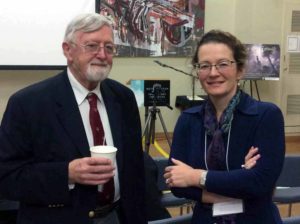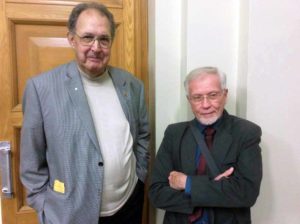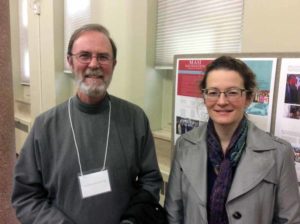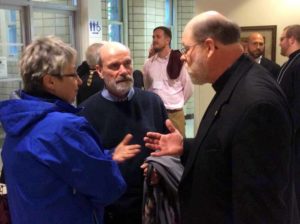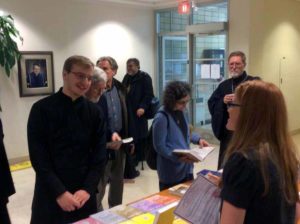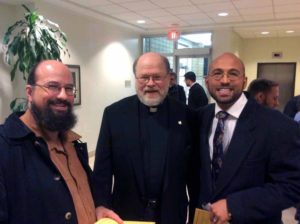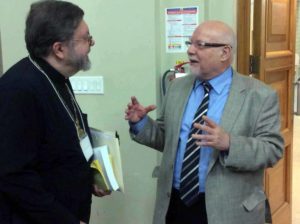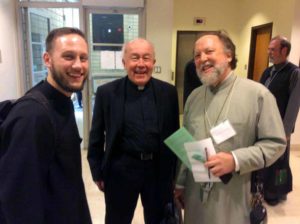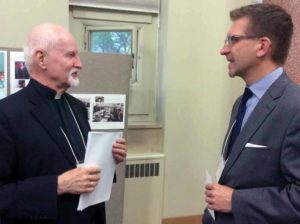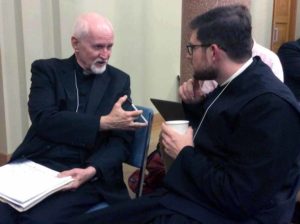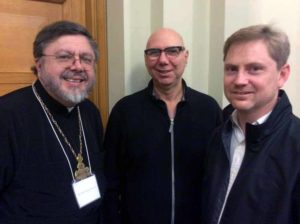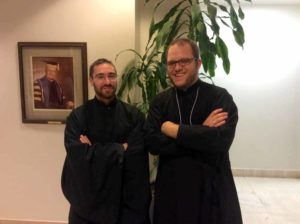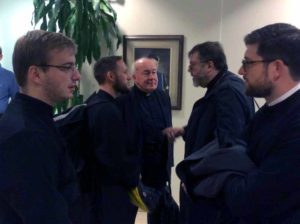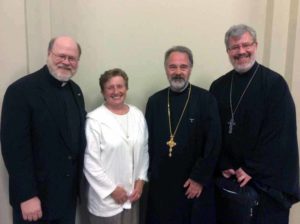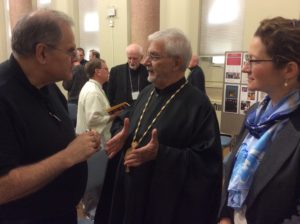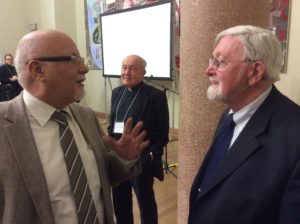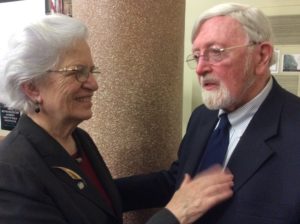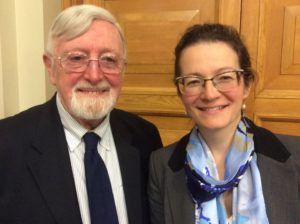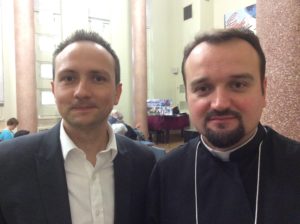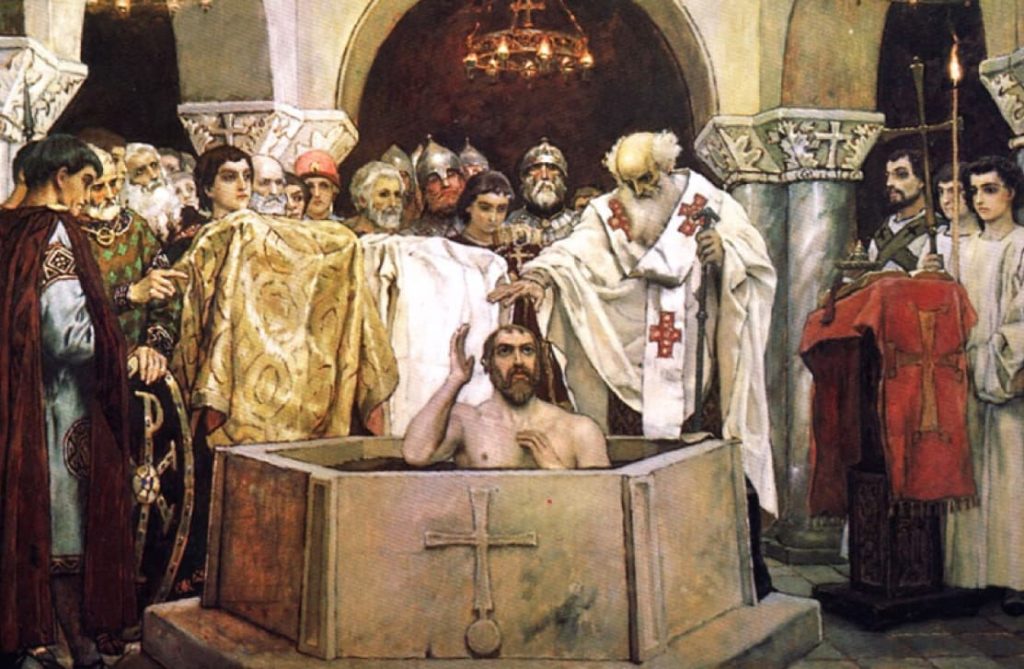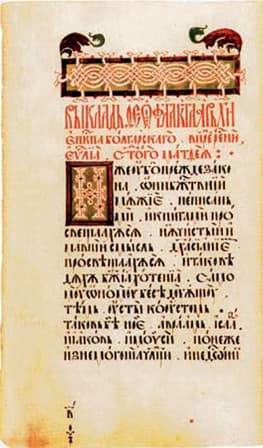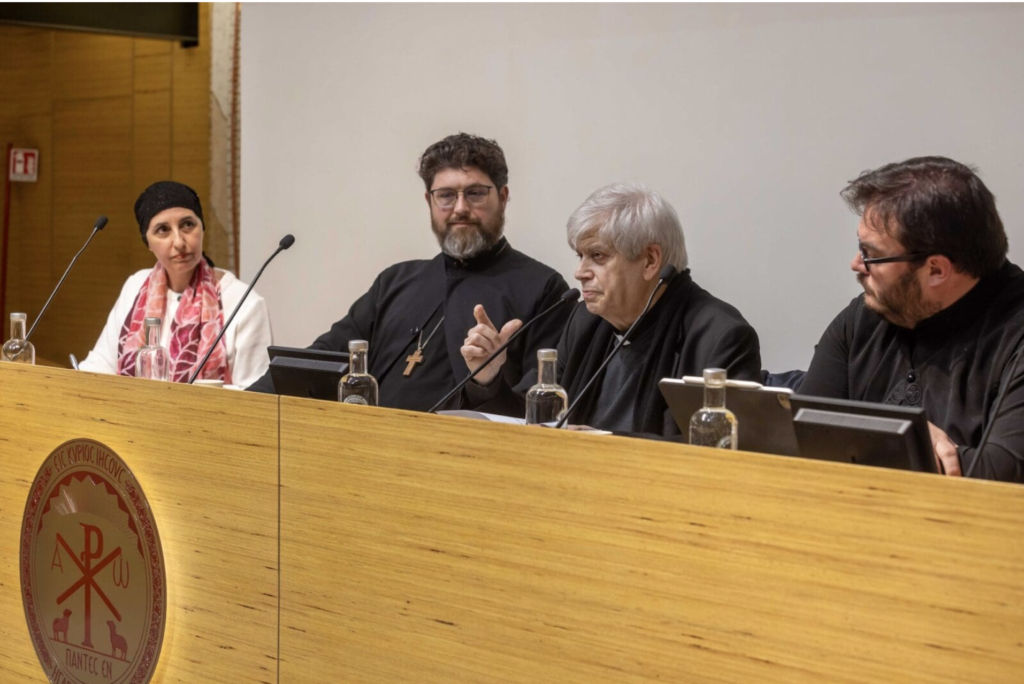
To be truly catholic, the Catholic Church must include the experience and perspectives of the Eastern Catholic churches, said the Rev. Basilio Petrà, contributor to a new book highlighting the distinctive contributions of Eastern Catholic theology.
Father Petrà, a professor of moral theology and priest of the Diocese of Prato, Italy, spoke at the European launch of the book, “Eastern Catholic Theology in Action,” at the Pontifical Oriental Institute in Rome, on 31 March.
The book is the first volume in the new series by Catholic University of America Press, “Eastern Catholic Studies and Texts,” dedicated to contemporary Eastern Catholic theology.
Eastern Catholic experiences and perspectives have been largely absent from official church documents, such as those on vocations, and at churchwide gatherings, including the synods on family and youth, despite the Eastern Catholic churches being full members of the Catholic communion, he said.
“The theology and pastoral ministry of the church is still defined from a Latin perspective,” said Father Petrà. He offered as an example how vocations are understood to be only three — marriage, consecrated life and ordained ministry — at the exclusion of the married priesthood in the Christian East. This represents “a lack of attention” to the experience, dignity and theology of the Eastern churches, he said.
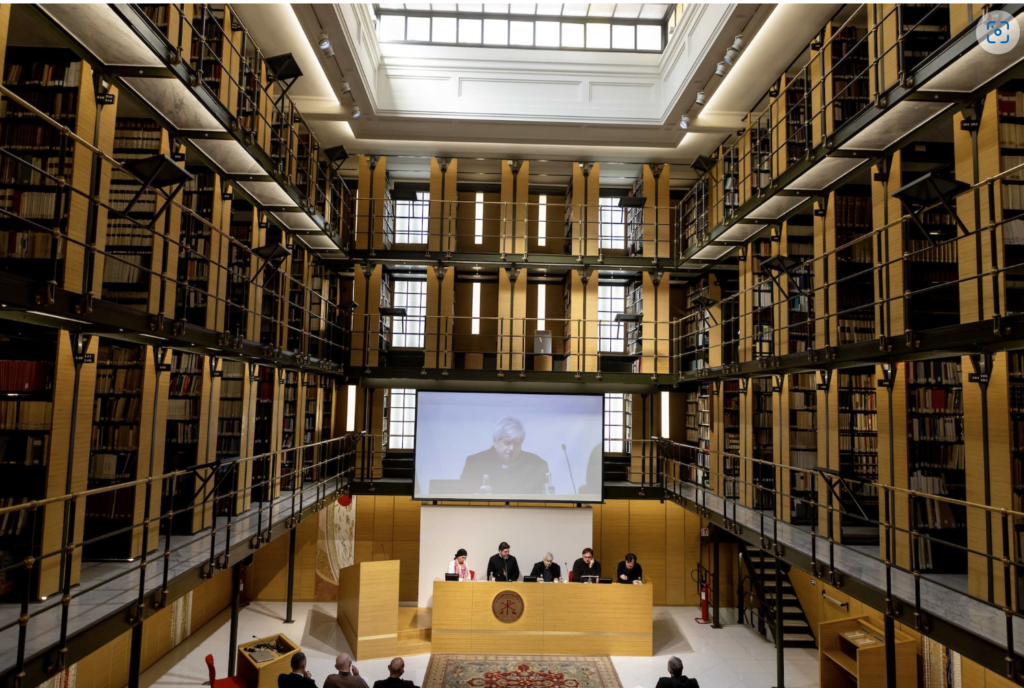
“The theology and pastoral ministry of the church is still defined from a Latin perspective,” said Father Petrà. He offered as an example how vocations are understood to be only three — marriage, consecrated life and ordained ministry — at the exclusion of the married priesthood in the Christian East. This represents “a lack of attention” to the experience, dignity and theology of the Eastern churches, he said.
In many church documents, the Latin position is often assumed as “the right one” and Roman Catholics will commonly view married priesthood as “a concession to human weakness,” he said.
Father Petrà attributed this negative opinion to the lack of a robust Eastern theological reflection on the married priesthood, compared with the extensive theological reflection on the celibate priesthood in the West.
However, Father Petrà noted a change in recent years toward a greater awareness and inclusion of the Eastern Catholic churches. He pointed to a document issued after the first session of the Synod of Bishops in 2023, which calls for two initiatives: a theological commission, comprised of both Eastern and Western theologians, historians and canon lawyers to study questions emerging from the synod, and greater representation of the Eastern Catholic churches in the Roman Curia.
“In other words,” he said, “in the dicasteries of the Roman Curia, we need to start having an Eastern presence, which in some way will help make the Roman Curia a Catholic Curia, and not just a Roman Curia, a Catholic Curia, at the service of the Catholic Church.”
Another document, published at the end of the second session on the Synod on Synodality in October 2024, calls on the various dicasteries to consult with the episcopal conferences of the Eastern Catholic churches “before publishing important normative documents.”
This call for greater representation and consultation is “a significant step forward,” he said.
The Reverend Alex Laschuk, a canon lawyer and executive director of the Metropolitan Sheptytsky Institute for Eastern Christian Studies at the University of St. Michael’s College in Toronto, spoke of the fragility of the Eastern Catholic churches and of their possible extinction.
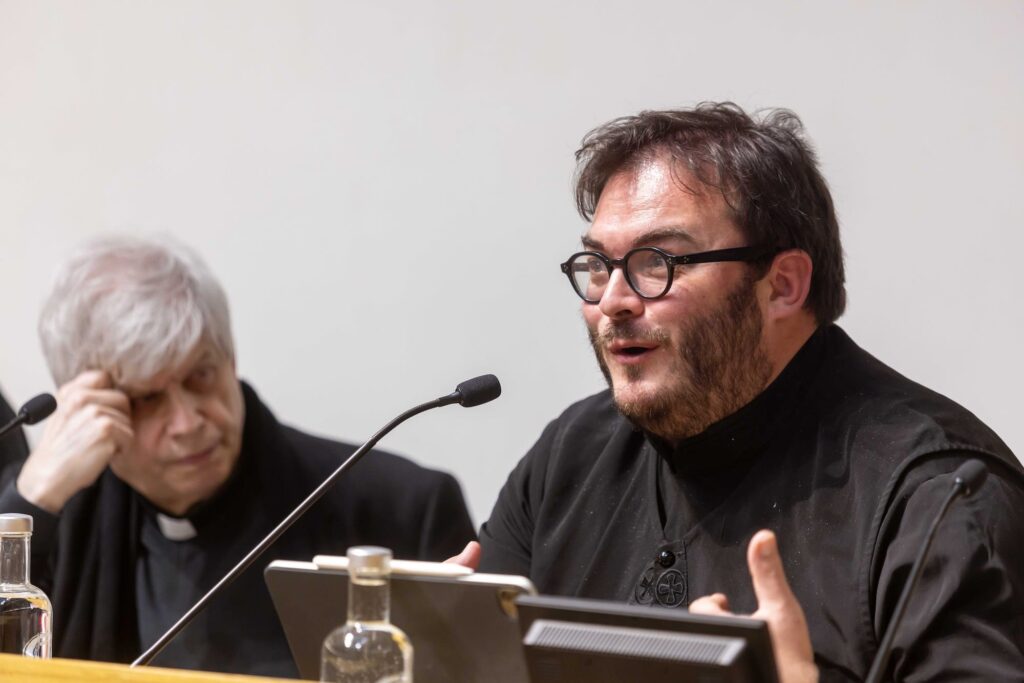
Many Eastern Catholics continue to flee from war and strife in their homelands to Western Europe and North America and assimilate into the Roman Catholic majority church.
Father Laschuk, who also contributed a book chapter, provided stark statistics from the United States and Canada, where numerous Eastern Catholic eparchies in recent decades have experienced “complete implosions,” some with drops in membership of more than 95 percent.
Despite the material support of the Latin Church for the Eastern Catholic churches in Canada, he said, many Eastern Catholics are under the jurisdiction of Latin bishops, who are not equipped to support or care for them pastorally according to their tradition.
“If we’re not able to preserve these [Eastern] churches in the West, it will mean the end of the [particular] church. Because there’s no one left in Iraq or in Syria or wherever they were, because they’ve all come here,” said Father Laschuk.
Exploring what could be done differently to stem this trend, he pointed out an underlying problem, namely that the jurisdiction of Eastern Catholic churches sui iuris does not currently extend to Eastern Catholics outside their canonical territory, effectively separating them from every aspect of their particular church, except liturgically.
As well, the “rich diversity” of the Eastern Catholic churches is often too complex for the “more homogenous” Latin Church to understand, he said.
“I can testify, from my experience in the Curia; every question regarding the East is automatically sent to our dicastery, almost as if to say: ‘Take care of it yourselves, we don’t understand anything!’, as if the East were an unsolvable puzzle or a labyrinth to be avoided,” he said.
Addressing the common cliché of the Eastern Catholic churches as a “bridge” toward unity with the Orthodox, he said: “We do not exist to ‘mediate’, but to participate fully in the life and theology of the universal church.”
The bridge metaphor “was a useful formula at the beginning of the ecumenical journey,” he said. “Today, however, it risks appearing empty.”
He also spoke about the all-too-common association of the Eastern churches with martyrdom, warning Catholics to “be careful not to slip into the ‘instrumentalization’ of sanctity.”
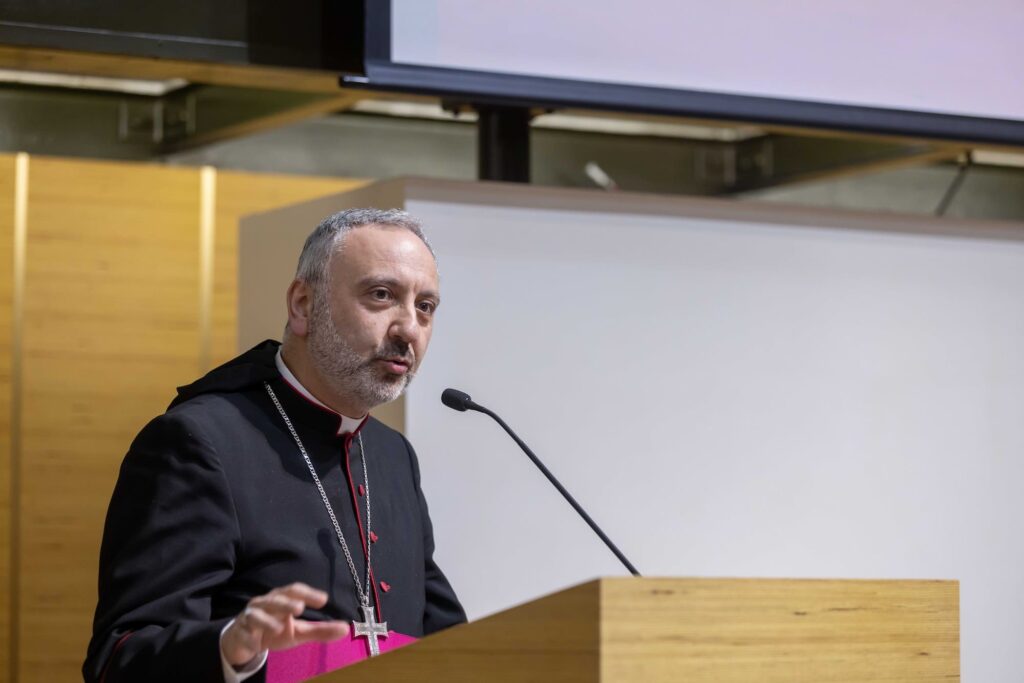
The second respondent, Thomas Cattoi, a professor at the Pontifical University of St. Thomas Aquinas (Angelicum), called for a rediscovery of “the complementarity, as opposed to the opposition,” between Eastern and Western theology.
He said Eastern Catholic churches can help Catholics rediscover that “all theology is contextual, and that even the legacy of the early churches can contribute to the spiritual renewal of the broad, universal church.”
Deacon Daniel Galadza, a professor at the Pontifical Oriental Institute and member of the Special Liturgical Commission of the Dicastery for the Eastern Churches, summarized the section in the book on liturgy, to which he contributed.
“An interest in Eastern Catholic theology — manifested in its authentic liturgical, spiritual and canonical heritage — is a refreshing change to an exaggerated interest in church politics or culture that often characterized it in the past,” he said.
The Rev. Andrew Summerson, the book’s coeditor and a professor of patristics at the Sheptytsky Institute, said the volume offers “a variety of Eastern Catholic voices” and “avoids self-conscious reflection and identity issues.”
“Instead, we wanted to privilege the voices of practitioners, liturgical theologians who crack open history, ritual and tradition,” he said.
The book pays tribute to the Rev. Peter Galadza, professor emeritus of the Sheptytsky Institute, founded by the Rev. Andriy Chirovsky in 1986.
Father Summerson said the goal in founding the institute was to answer the question, “What is Eastern Catholic theology?”, and the book demonstrates this pursuit “lives past the fever dream of the founders.” The book presentation in Rome was sponsored by the Metropolitan Andrey Sheptytsky Institute, the PIO and Catholic Near East Welfare Association. Watch the recording of the livestream.
Laura Ieraci is the editor of ONE magazine.
This story originally appeared in CNEWA Canada article: Panel Calls for Greater Participation, Fewer Clichés of Eastern Catholic Churches | CNEWA





